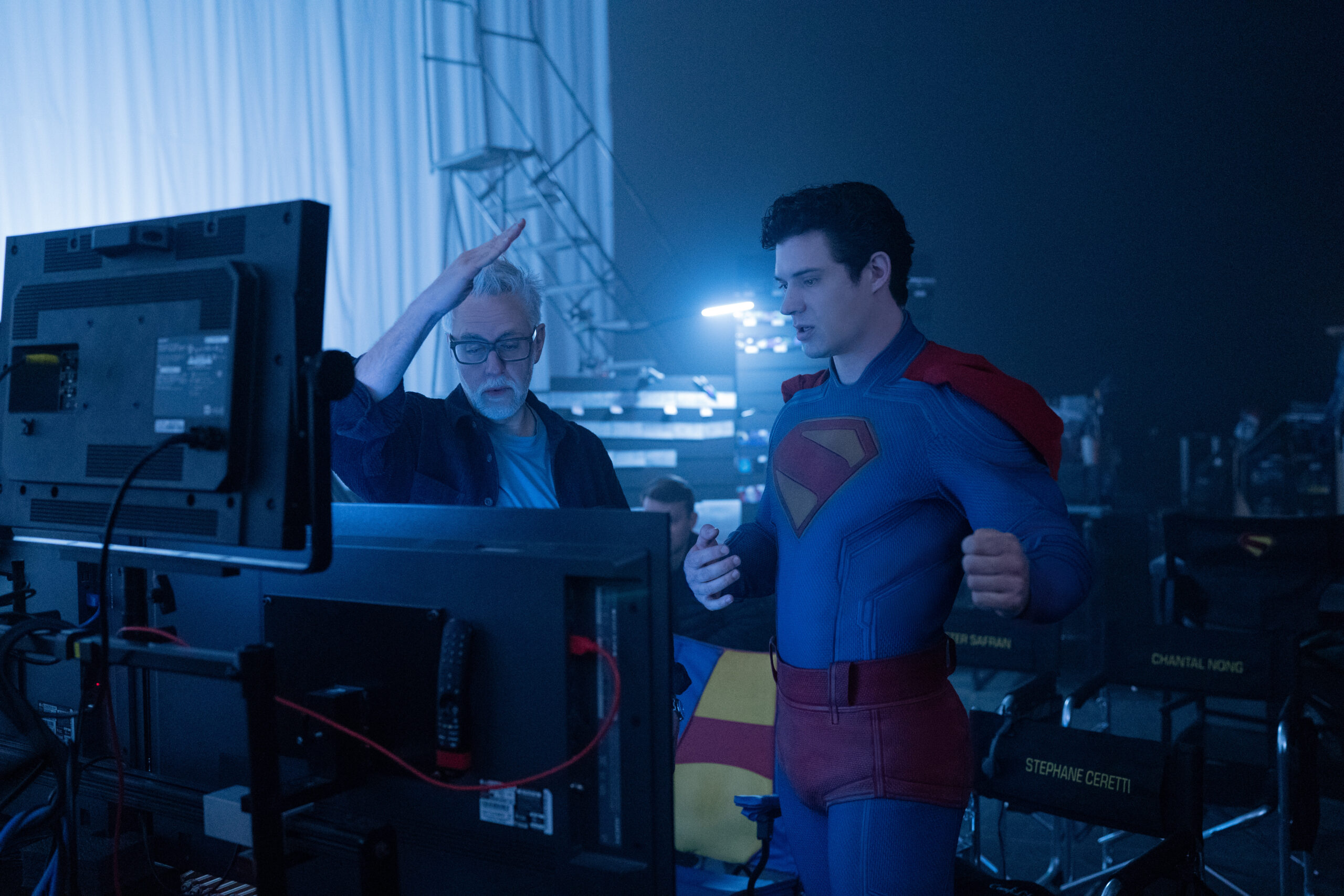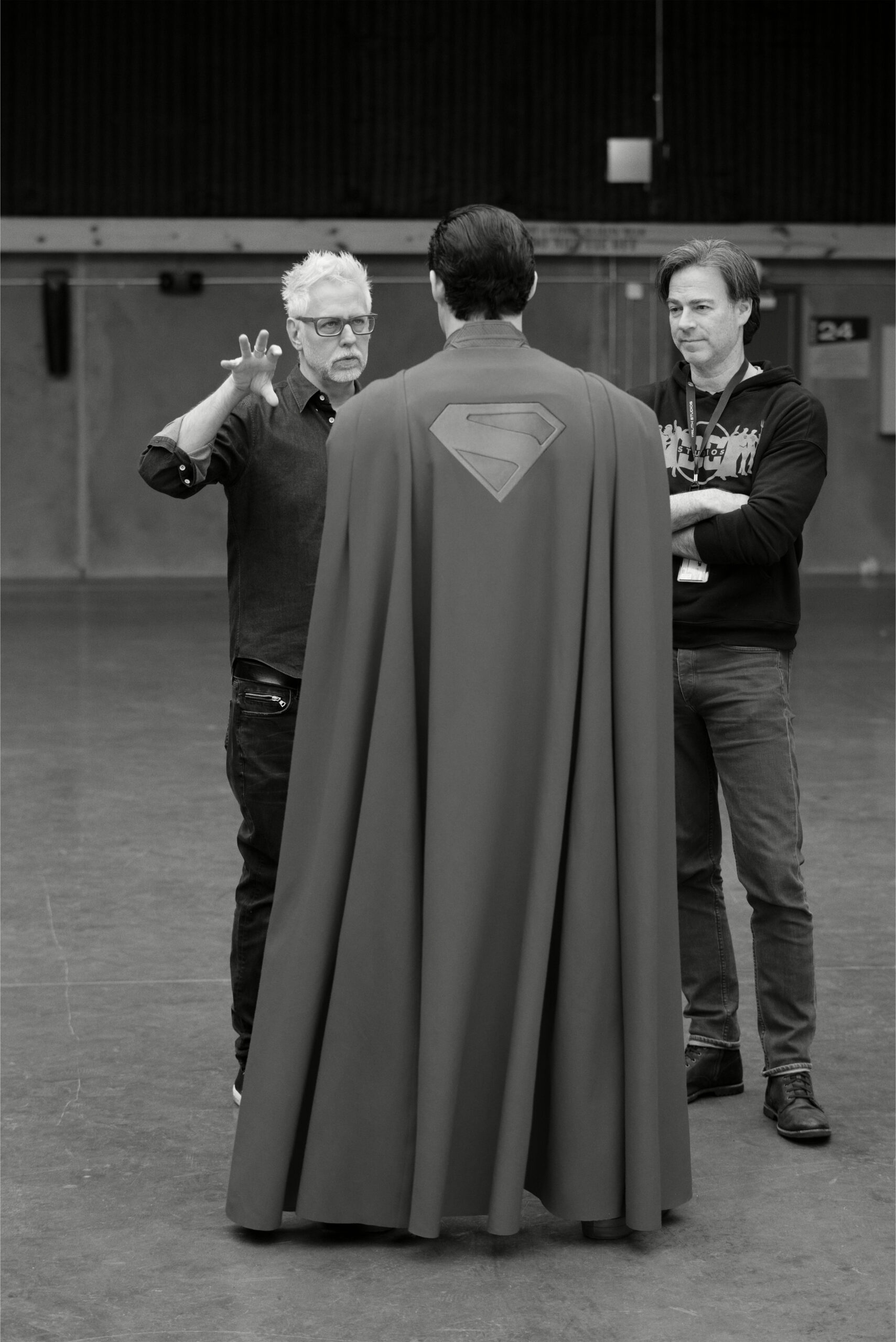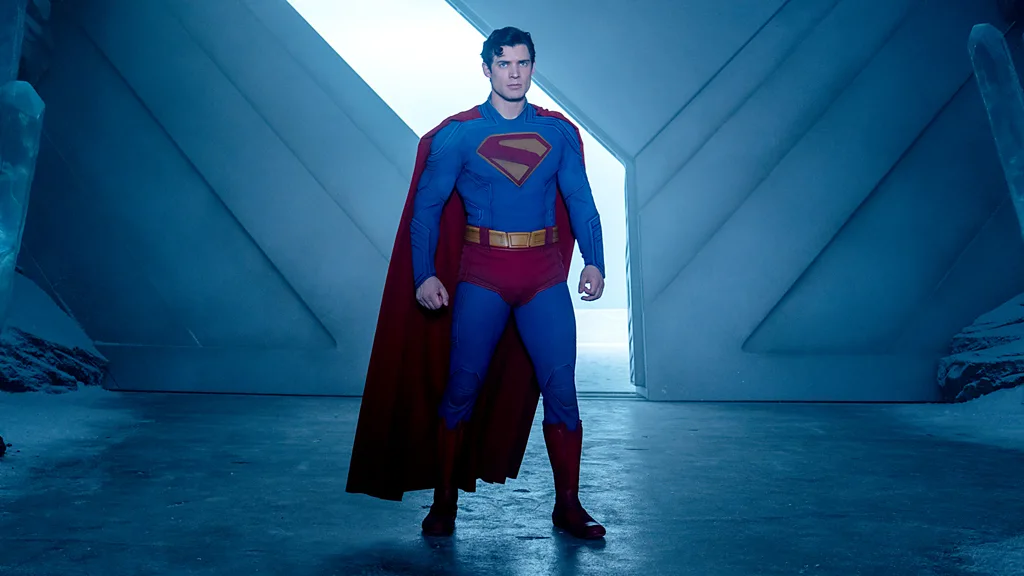Superman, James Gunn’s reboot of the iconic DC comic book hero, arrives in Italian theaters on July 9 and hits U.S. screens two days later, on July 11, distributed by Warner Bros. Pictures. But more than a cinematic event, this new take on the Man of Steel feels like a desperate attempt to launch an entire narrative universe while still mired in creative disarray.
At a time when the blockbuster industry seems unable to distinguish between nostalgia and neurosis, Gunn opts to land a Superman that bears little resemblance to the mythic figure of past iterations. The character we meet—played with a kind of bashful sincerity by David Corenswet—is a clumsy alien, a courteous hero in the throes of existential doubt, the unlikely center of a film that veers between psychedelic B-movie, failed satire, and love letter to the most delirious corners of Golden Age comic books.

Gunn, now director and co-CEO of the rebranded DC Studios, avoids revisiting Superman’s origin story. There are no rockets escaping Krypton, no wheat fields in Kansas, no formative childhood trauma. His Kal-El is already in mid-flight, already famous, already in a relationship with Lois Lane, and already entangled in the geopolitical messiness of the 21st century.
The film opens amid a war between two fictional nations, Boravia and Jarhanpur. But the fiction is a thin veil. Boravia is a barely disguised stand-in for Vladimir Putin’s Russia—an authoritarian aggressor conducting a military campaign it disingenuously labels a “liberation.” Jarhanpur, by contrast, evokes Zelensky’s Ukraine—smaller, invaded, painted as the innocent victim in need of global support. Superman chooses to intervene on Jarhanpur’s behalf, only to be defeated by a supersoldier—possibly a pawn of Lex Luthor—who leaves him humiliated and broken. He is the sole responder; neither NATO nor the United Nations steps in. The metaphor is hardly subtle.
From there, the narrative explodes into a frenzy of plotlines and visual flourishes, as if imagined by a teenager left unsupervised in a comic book store for days: there are caped helper robots, flying dogs, hypnotic glasses, pocket universes, propaganda-disseminating monkeys, green demons, and even an Irish vampire folk dance that—mercifully—belongs to another film entirely.
Gunn appears fully aware that he’s toying with material far too serious to take seriously, and so he leans into the chaos. His Superman plays like an extended act of affectionate cosplay—a maximalist, disorderly celebration of everything garish, fringe, and absurd that once lived in the margins of DC Comics.
Yet amid the kaleidoscopic delirium, there are flashes of brilliance that land with unexpected force. Rachel Brosnahan delivers a sharp, magnetic Lois Lane—world-weary, unsentimental, capable of interrogating her superhero lover as if he were standing trial at The Hague.

This Superman doesn’t aim to be parody or drama but something stranger and more unstable: a fusion of childlike absurdity and pointed political allegory. Luthor—played by Nicholas Hoult as if Michael Scott had been possessed by Steve Bannon—is a billionaire technocrat and dark prophet of digital populism, accusing Superman of manipulating humanity, branding him a moral threat, and launching an online smear campaign to dismantle his legacy. He may be the most 2025 villain imaginable.
Hovering in the background is an America that’s tired, cynical, and increasingly unsure of what—or whom—to believe. An America hollowed out by disinformation, polarization, and a profound distrust in public power. It’s a nation that views Superman not with awe or reverence, but with deep suspicion. And that may be the film’s most honest revelation, however muddled: it’s not the hero who has changed—it’s the world around him that no longer sees him for what he is.










